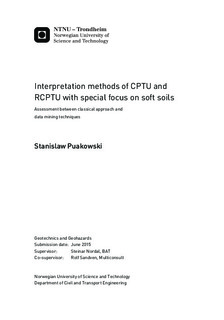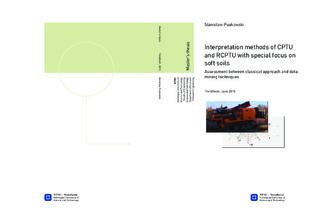| dc.description.abstract | The purpose of the following work is to explain numerous methods of interpretation of CPT (Cone Penetration Test) and to find the most practical one for soft soils. Due to the complex nature of the problem and the needs of acquiring credible results following parameters have been taken into account: pore pressure measurement (CPTU) and resistivity (RCPTU).
The present master's thesis focuses on comparison of post-processed results from different interpretation methods with laboratory data. In the beginning most popular approaches for sensitive soils are presented: soil classification charts, undrained shear strength, sensitivity and resistivity measurements from RCPTu.
Further, an experimental method of machine learning is explained. Three solutions has been choosen with different classifying algorithms. This ensures separate origin of the calculated results, which should simplify overall analysis of the models. The data mining software called WEKA is used for the calculations. Possible combinations of testing, verification process and modeled soil profiles are presented in the process.
All the research is concluded in final comparison of obtained results to laboratory data and most accurate predictions are selected. | |

